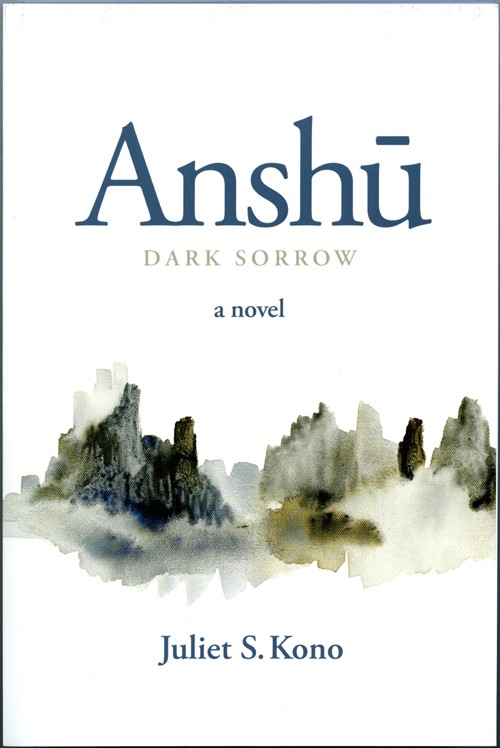
Wow.
That’s the exclamation I gave after reading the first two chapters of Anshū at the book store. Misty was there with me, and she told me she felt the same way when she read the beginning a few days prior. We began to debate on who would review this fascinating novel, as both of us were keen on reading the whole book. Luckily, I was able to win out, with Misty proclaiming that she’ll eventually read it anyway. After buying the book, taking it home, and reading the rest of the novel, I was glad I got to read it first.
Anshū: Dark Sorrow is the tale of a young Nisei girl from a small town near Hilo, Hawaiʻi, going by the name of Himiko Aoki or Hi-chan for short. Hi-chan in her youth is obsessed with fire, setting random flames in the yard much to the chagrin of her family. This focus on fire—being touched by it, driven by its enchanting flame and blistering heat—is always a constant symbol appearing throughout the novel. The fire of her passions with the neighbor’s son, however, leave her an unmarried and pregnant teenager. To hide her family’s shame in the small plantation town, her mother is forced to send her to live with relatives in Tokyo.
Hi-chan arrives in Japan a month prior to Pearl Harbor, and once war breaks out with America she becomes trapped. Although it is the country of her heritage, for Hi-chan it’s a foreign country nonetheless. Once the spoiled darling of her family, Hi-chan soon finds that her station in Japan is far from ideal, essentially becoming her relative’s servant. She slowly struggles for acceptance with her estranged family and new community.
Through the hardships of poverty, further entrenched by wartime rationing, Hi-chan helps her relatives survive by adapting to her Japanese culture while making strong human connections with the people she comes across. Ultimately, the family’s misfortunes cause them to move back to their ancestral home of Hiroshima, where the most ominous of fires would come to change their world forever.
[gn_quote]People are afraid of what they don’t understand. IN this country, being different is looked upon unfavorably. But your difference has always been part of your strength. [/gn_quote]Anshū is a well-crafted story about one woman’s anguish and sorrow, set against one of the most dark and devastating periods of Japan. Kono’s characters are fully-realized people—they have many flaws, feel real emotions, yet have many redeeming qualities. Kono does an excellent job of portraying Hi-chan’s slow acceptance and assimilation into Japanese culture, without completely losing the self-assured fire of her past.
Juliet Kono is also skilled at concise and effective language, having honed her craft writing poetry for many years. She captures the identity of each environment through scenic descriptions and sharp dialogue. The scenes in Hawaiʻi are vibrant and poetic displays, echoing the diverse color of the land and people. When the novel moves to Japan, there is a more dry, severe tone reflective of the rigidity of Japanese customs and the bleakness of the family’s impoverished situation. The once fiery and flippant aura of Hi-chan is dampened by the weight of her new circumstances and surrounding.
Anshū is one of the best novels from Hawaiʻi that I’ve read this past year. It’s a story we should all read—whether to comprehend the harsh burden of sacrifice, the unapologetic destruction of war, or the gentle wisdom of Buddhism. Yet, it’s not an easy read; the conflicts and constant tragedy can often be hard on the heart. Still, I would highly recommend it to you as it’s an important piece of the Hawaiʻi-Japanese canon, one that will burn a lasting imprint on your soul.
[gn_divider] Juliet Kono will be attending the Celebrate Reading Festival this Saturday to talk about her novel Anshū: Dark Sorrow as well as her linked poetry book No Choice but to Follow with co-authors Jean Toyama and Ann Inoshita. Do not miss this opportunity to hear her read and speak!
Juliet Kono will be attending the Celebrate Reading Festival this Saturday to talk about her novel Anshū: Dark Sorrow as well as her linked poetry book No Choice but to Follow with co-authors Jean Toyama and Ann Inoshita. Do not miss this opportunity to hear her read and speak!




